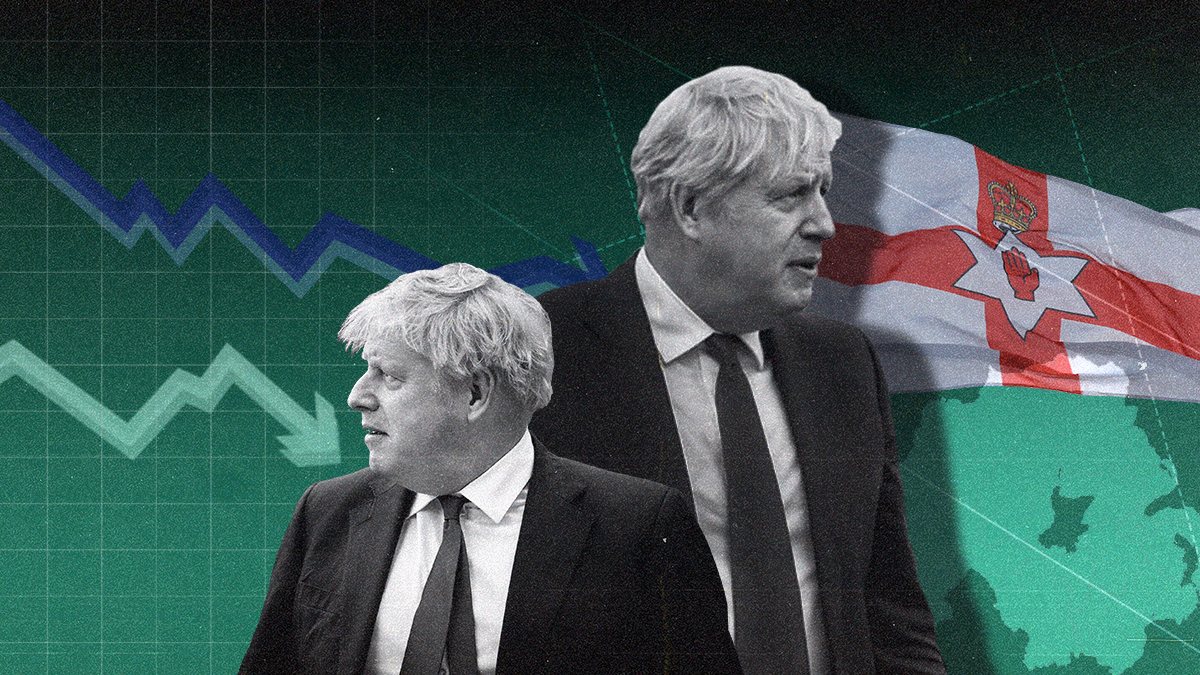April 27, 2022
To keep one’s political allies onside, it helps to have the right enemies. Especially when one is in trouble. And Prime Minister Boris Johnson is in serious trouble. The scandal resulting from his attendance at parties during COVID lockdowns and from the perception that he lied about it has taken a toll on Johnson’s popularity. His aggressive support for Ukraine against Russian invaders hasn’t done enough to boost his support.
For now, says Eurasia Group Europe expert Mujtaba Rahman, “a silent majority within Johnson’s Conservative Party refuse to support him but have not yet decided to try to oust him.” Johnson might survive if he makes it to summer without a leadership challenge. But, “a growing number of critics within his party believe the crunch moment is coming sooner than that,” warns Rahman.
Crunch time may begin next Thursday, May 5, after votes are counted from local elections across the UK. The results will be widely judged as a referendum on Johnson’s government, and poor Conservative Party performance could push him to the edge of a political cliff.
One of the most highly anticipated local votes will unfold in Northern Ireland, where the latest polls suggest Sinn Féin will win the most seats for the first time in the assembly’s history. If so, the importance will be less practical than symbolic. The party that comes first must share power with rivals, and Sinn Féin has based its campaign more on pocketbook issues than on its long-term support for Irish reunification. But with the Scottish National Party holding its dominant position in Scotland, a Sinn Féin win would, for the first time, see the legislatures of both Scotland and Northern Ireland led by parties that are seeking an exit from the United Kingdom.
And that might be embarrassing enough for the government to persuade reluctant Tories to send Boris Johnson packing. To avoid that fate, the prime minister looks set to pick a fight with his favorite foil: Brussels. That’s why, Rahman warns, “the risk of a major UK-EU dispute over the Northern Ireland Protocol is on the rise.”
The protocol, you might remember, is the arrangement that Johnson’s government agreed to with the EU that effectively created a customs border in the Irish Sea for goods traveling between Britain, Northern Ireland, and the EU. Its purpose was to avoid the re-establishment of a hard border between the Republic of Ireland, still an EU member, and Northern Ireland, a part of the UK. Johnson says the deal was meant to be temporary, but there is still no clear way of fixing the problem it was meant to solve.
Johnson’s government is now drafting a law that would give UK officials the power to override that part of the Brexit deal, challenging the EU to either renegotiate or try to solve the border problem itself. Critics charge that such a move would violate international law. “Even the threat of legislation will be judged incendiary by the EU,” says Rahman.
Will this maneuver save Johnson’s political career? Probably not. He promised before the last election to “get Brexit done.” Another fight with the EU, particularly at a moment when many consider Western unity in response to Russia’s war in Ukraine to be critical, won’t score him enough points with fed-up former allies within his party.
More to the point, another fight with his favorite villains – European bureaucrats and anti-Brexit rivals at home – probably isn’t enough to distract voters from the economic headaches and personal scandals that have kept Johnson’s job approval below 30% for the past six months.
But that doesn’t mean he won’t give it a go.More For You
A photograph posted by U.S. President Donald Trump on his Truth Social account shows him sitting next to CIA Director John Ratcliffe as they watch the U.S. military operation in Venezuela from Trump's Mar a Lago resort, in Palm Beach, Florida, U.S., January 3, 2026.
@realDonaldTrump/Handout via REUTERS
Most Popular
- YouTube
In this "ask ian," Ian Bremmer analyzes Trump’s recent meeting with Zelensky and how close (or far) Russia and Ukraine are from a peace deal.
Syrian President Ahmed al-Sharaa attends the military parade of the Syrian army in Umayyad Square in central Damascus to mark the one-year anniversary of the fall of the Assad regime, on Dec. 8, 2025.
Mohammed Al-Rifai/dpa via Reuters Connect
A year ago this month, Syria’s brutal dictatorship collapsed. There are signs of recovery, but sectarian violence threatens to undermine the optimism.
© 2025 GZERO Media. All Rights Reserved | A Eurasia Group media company.
